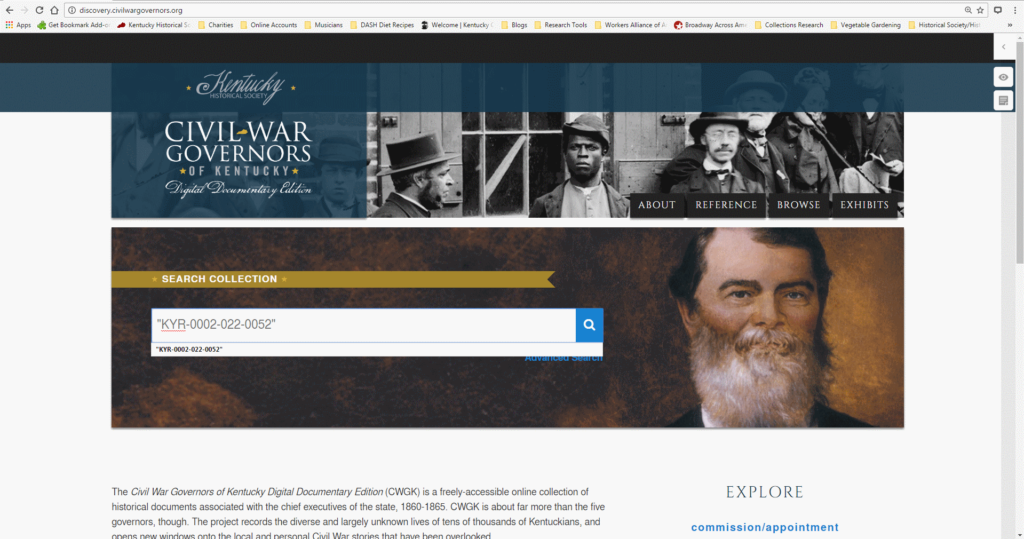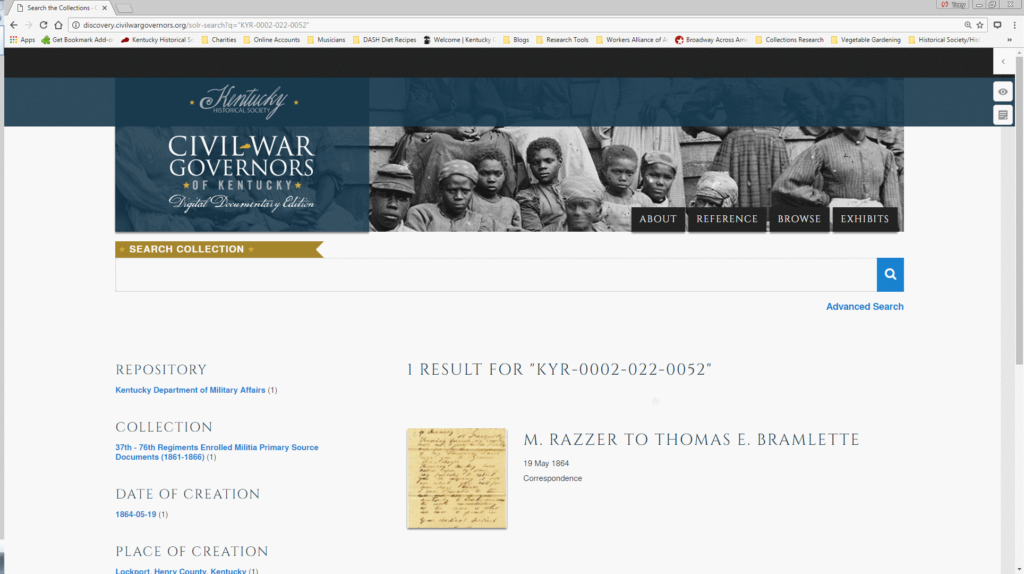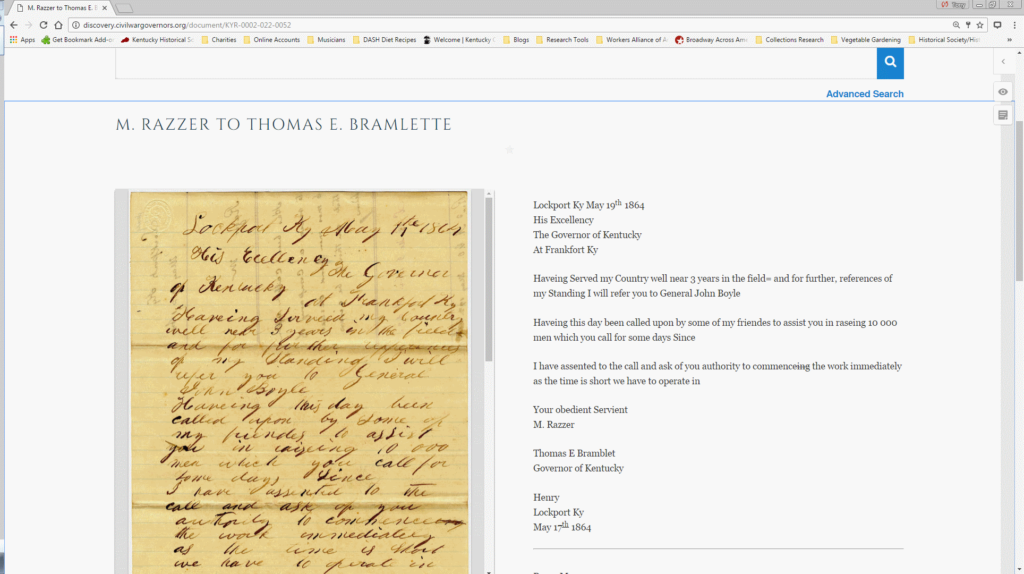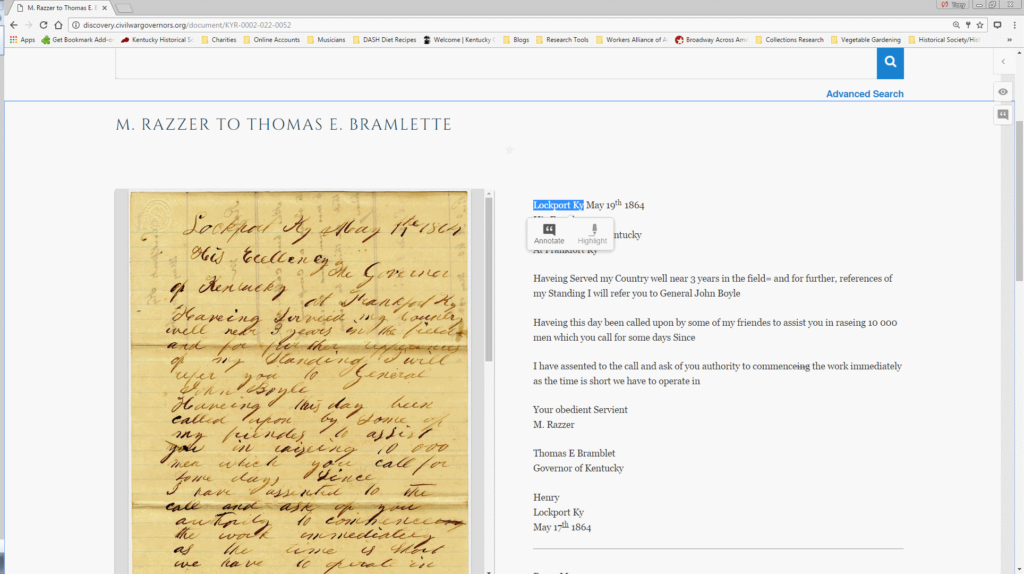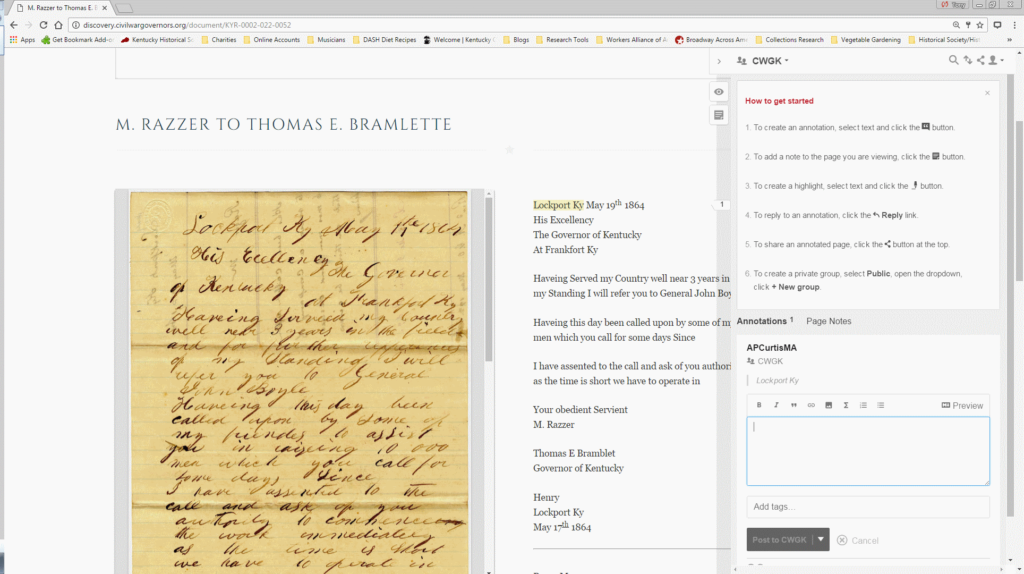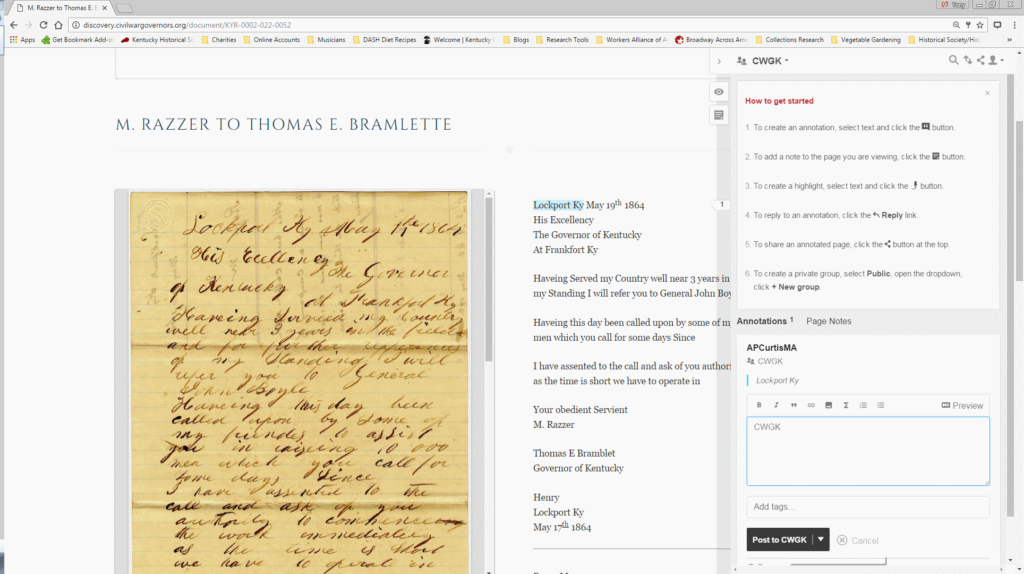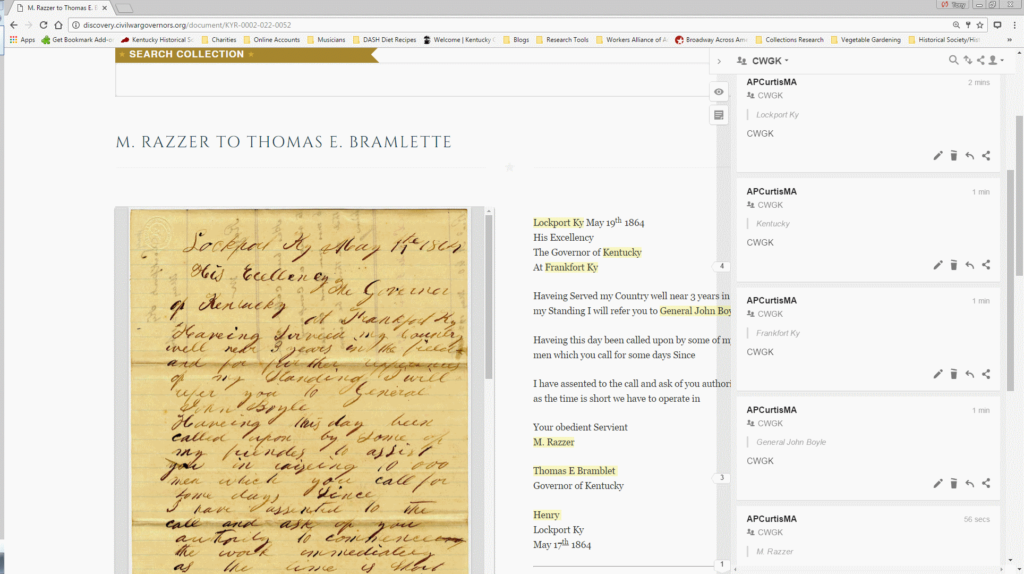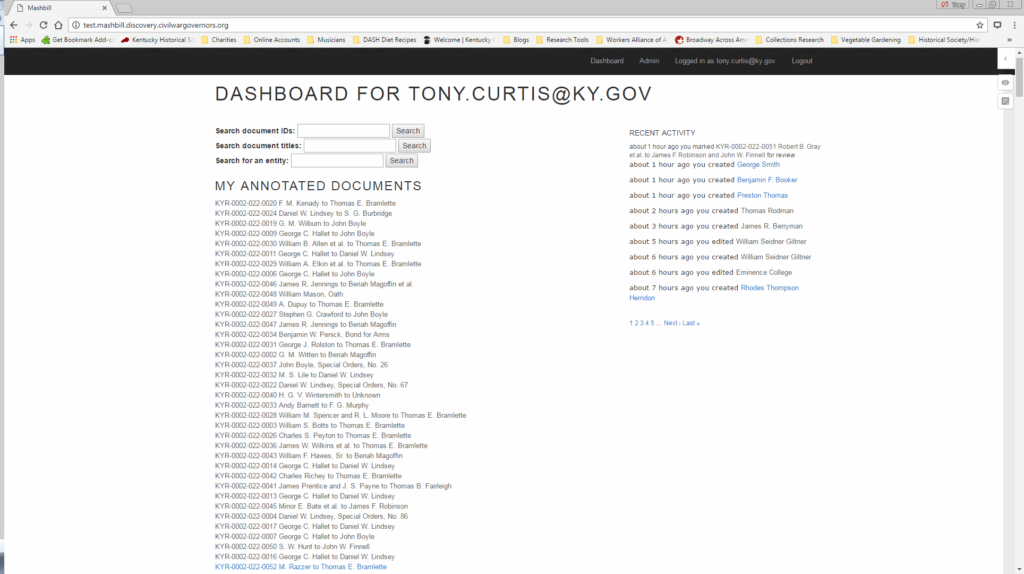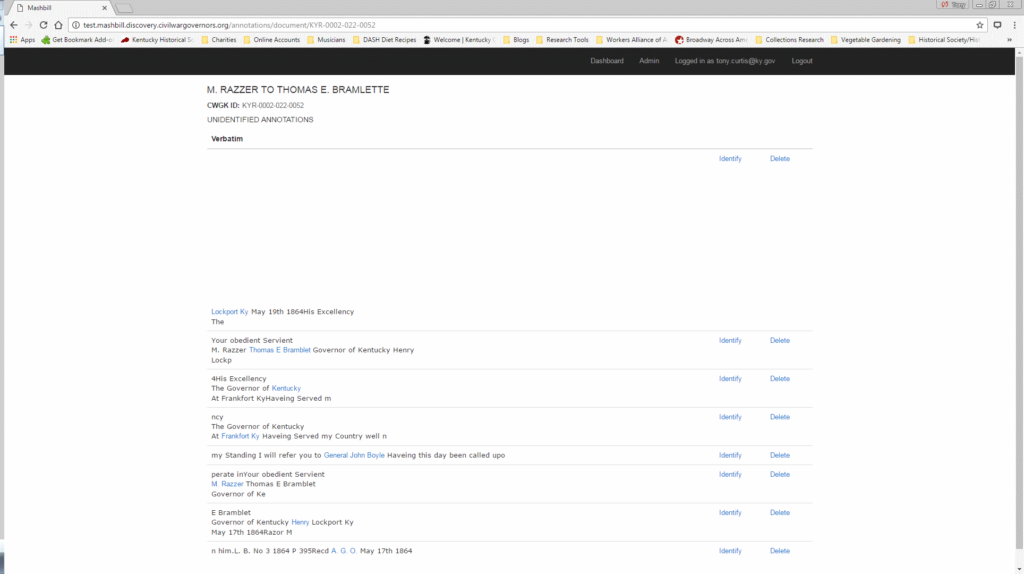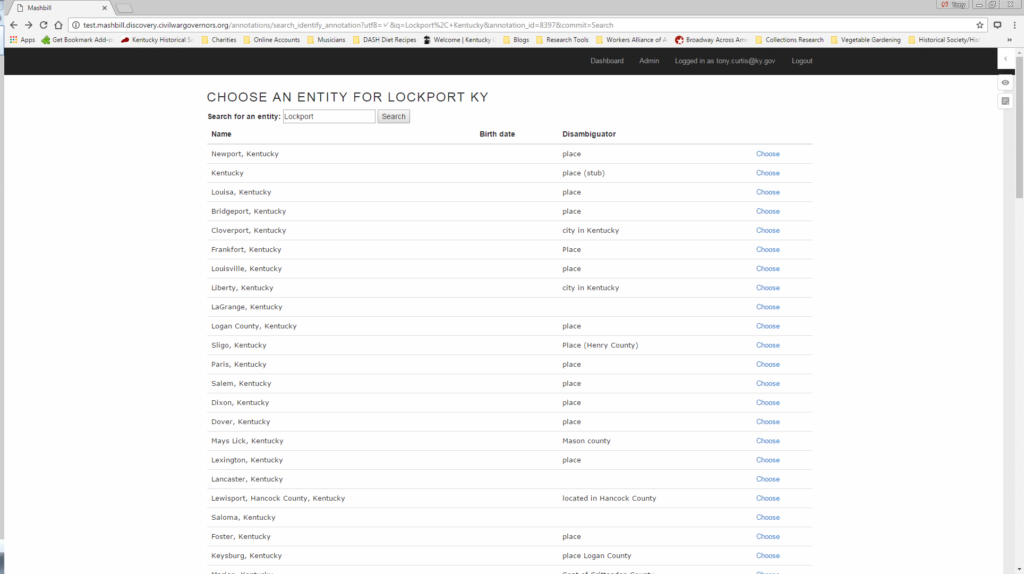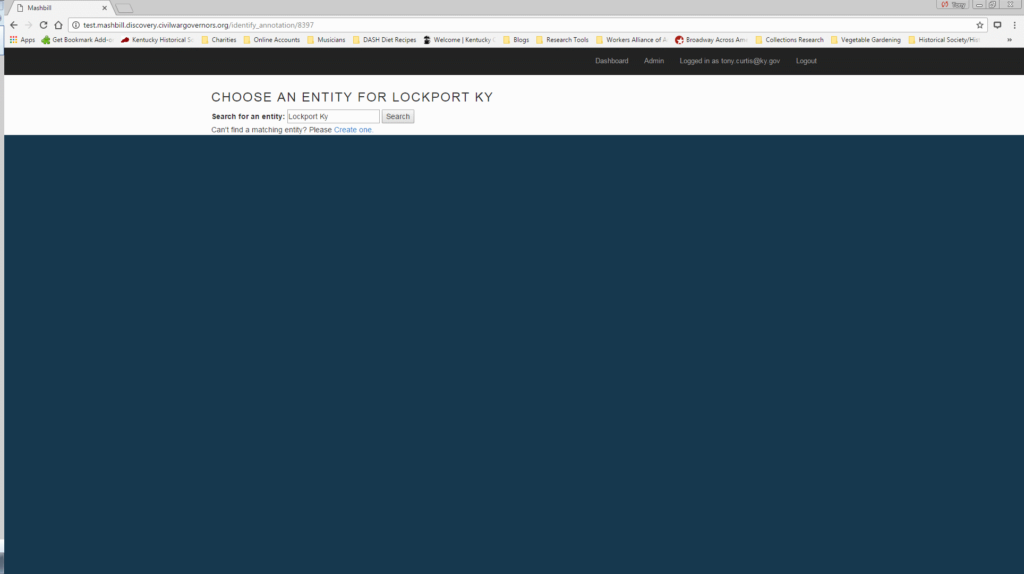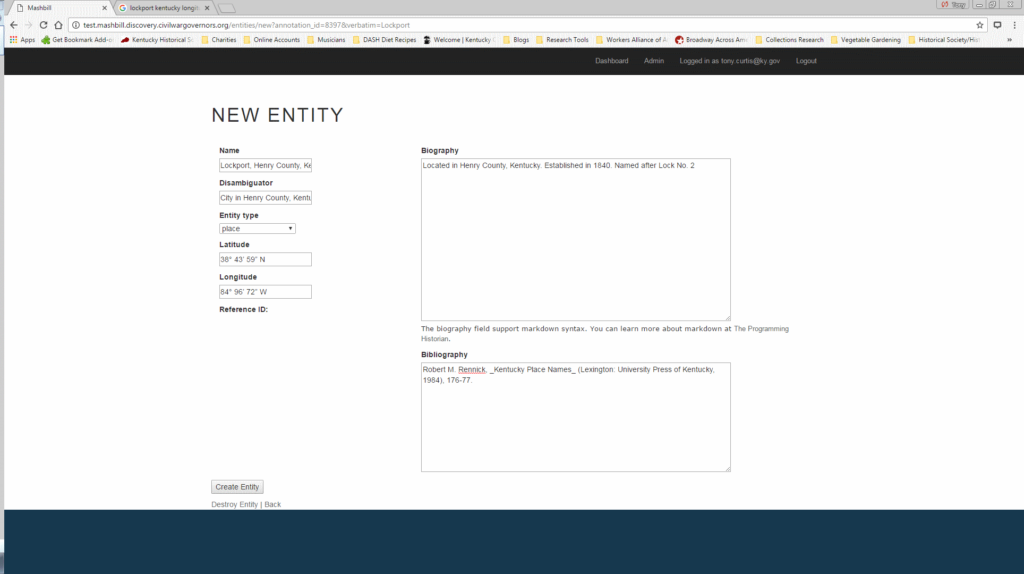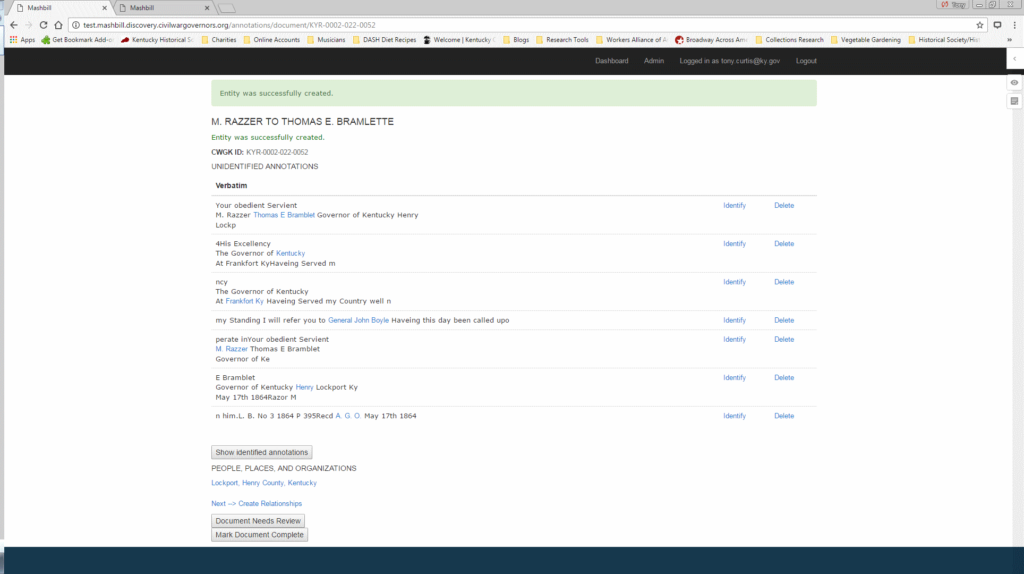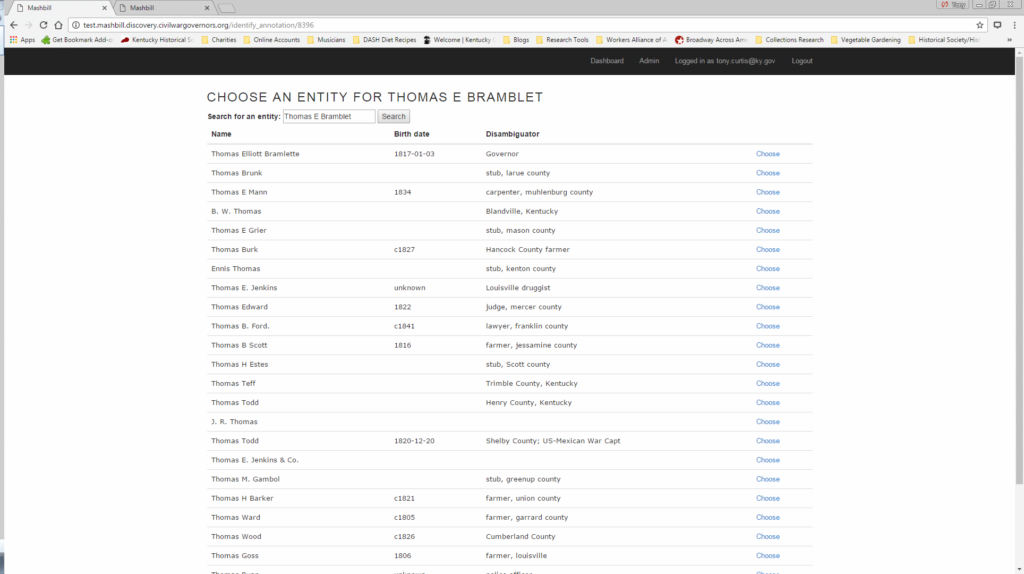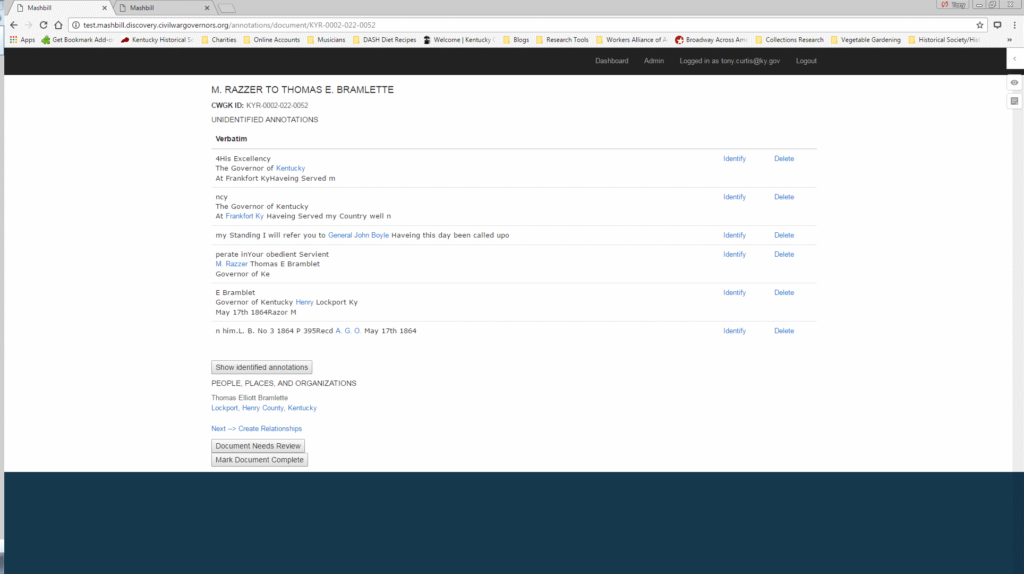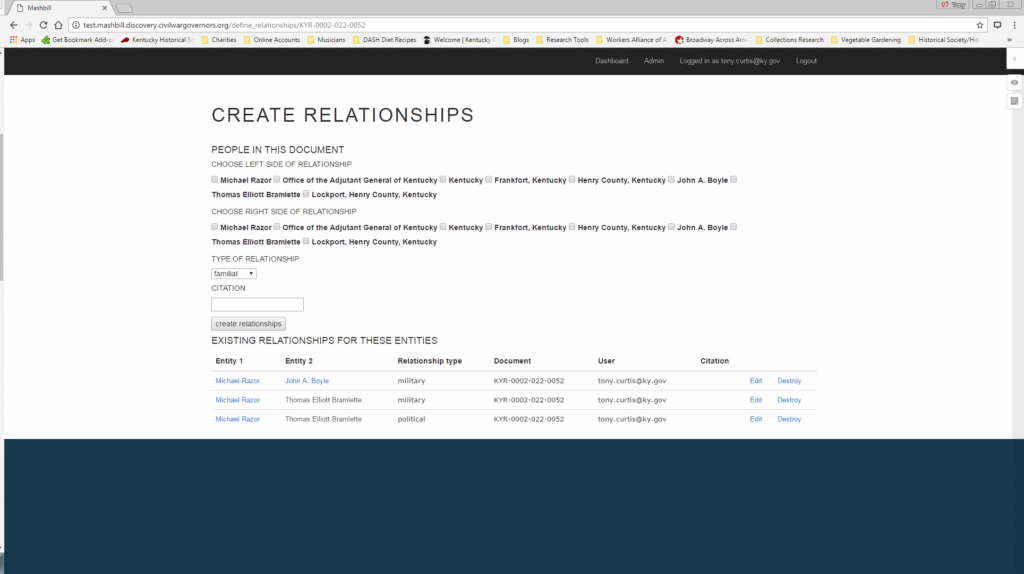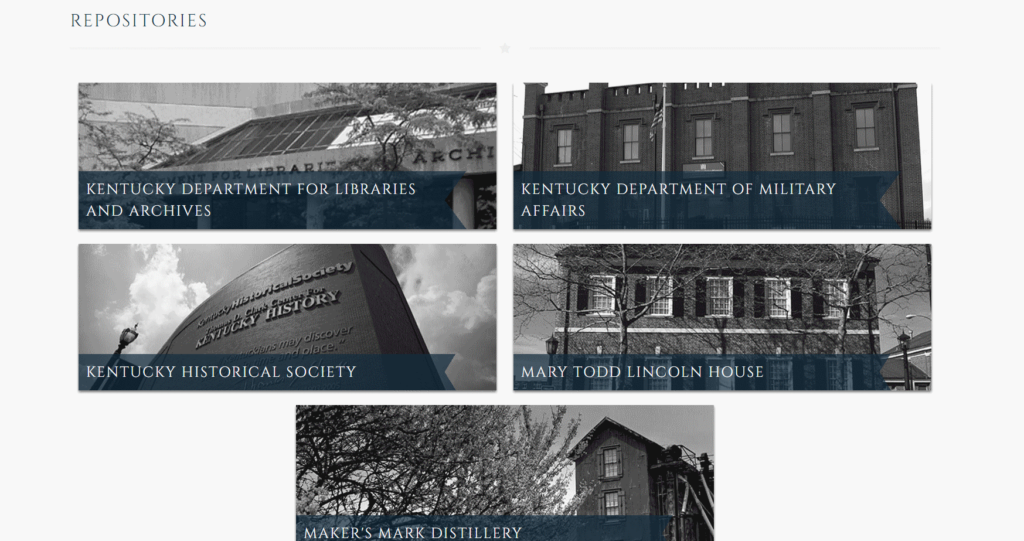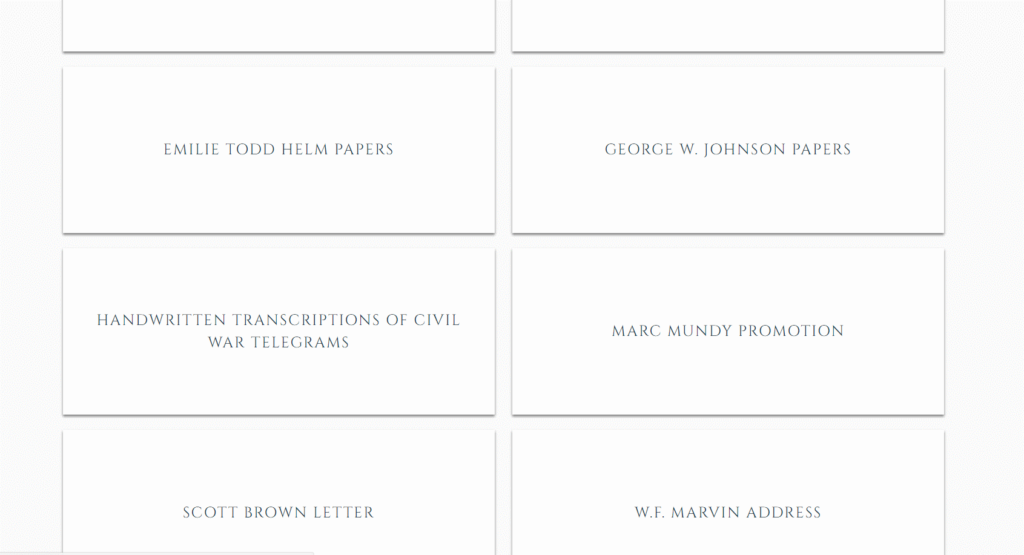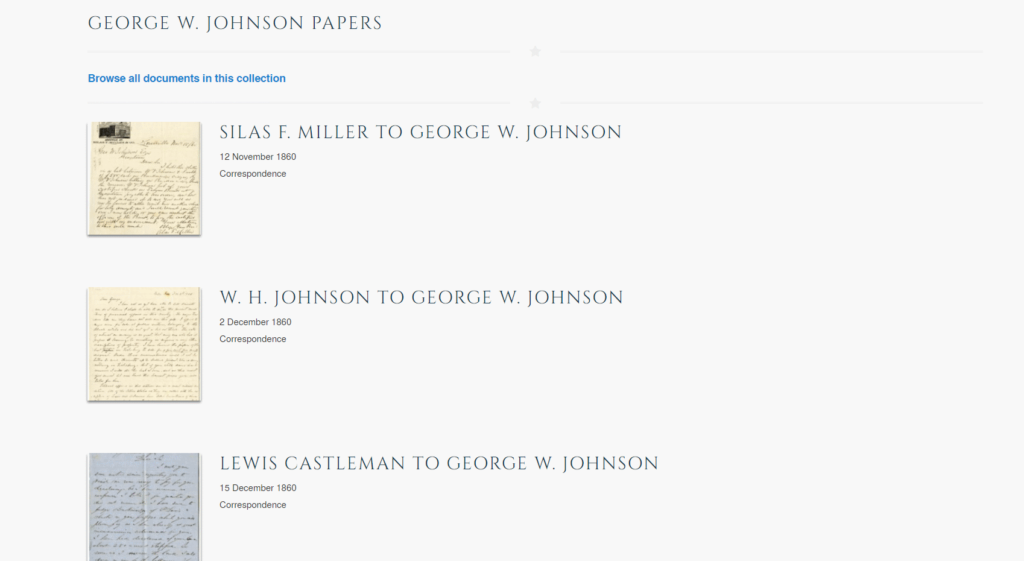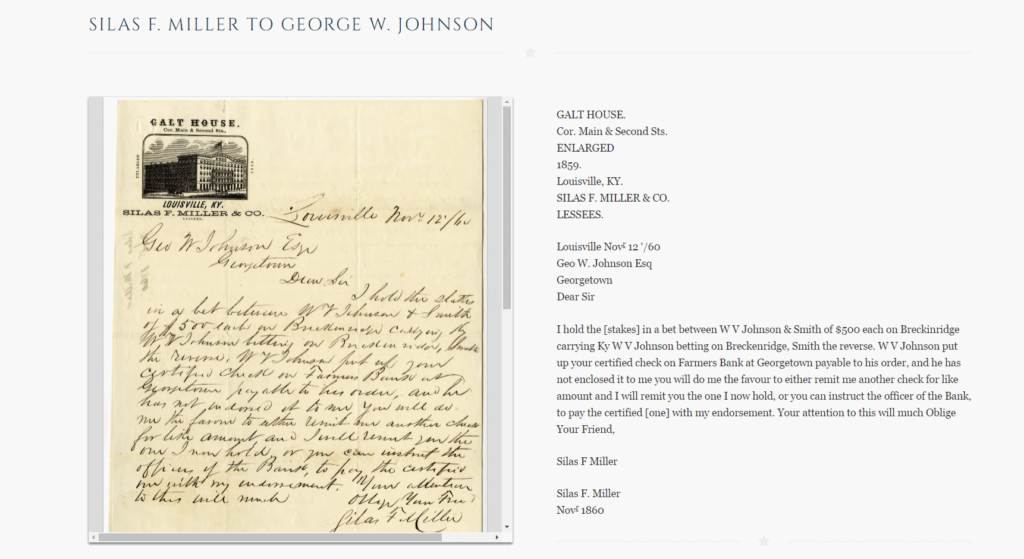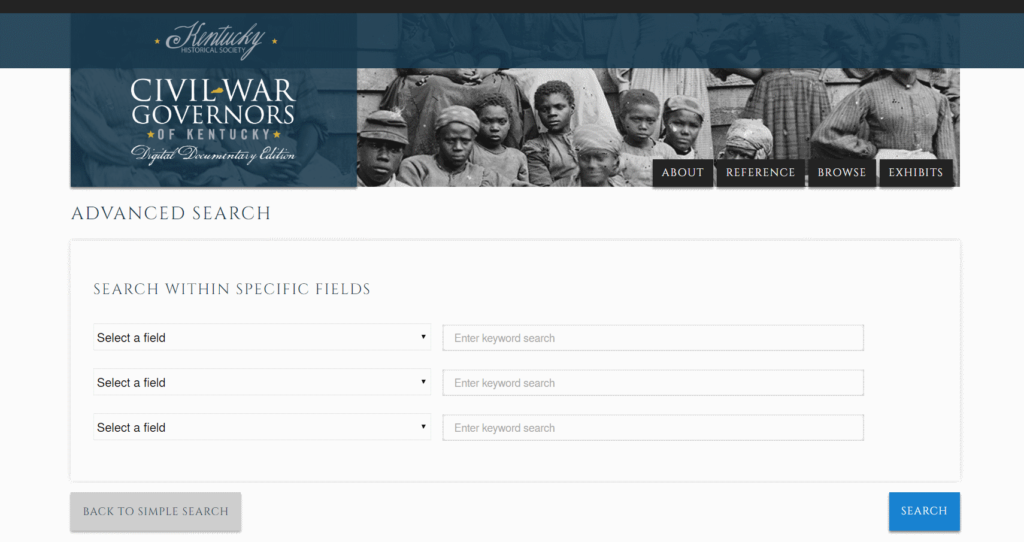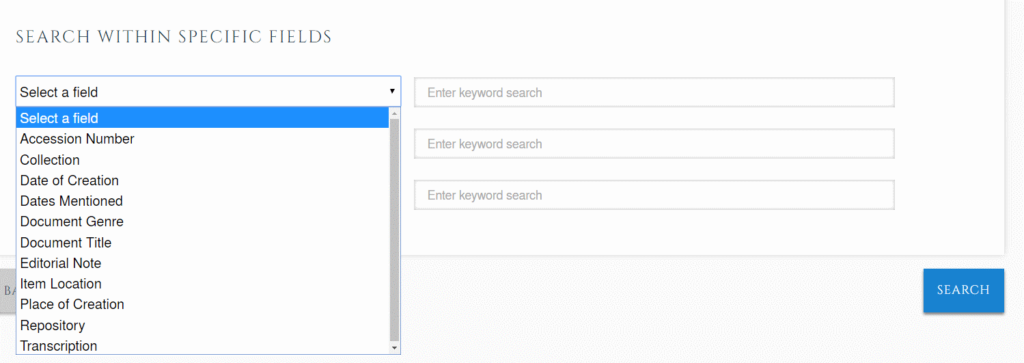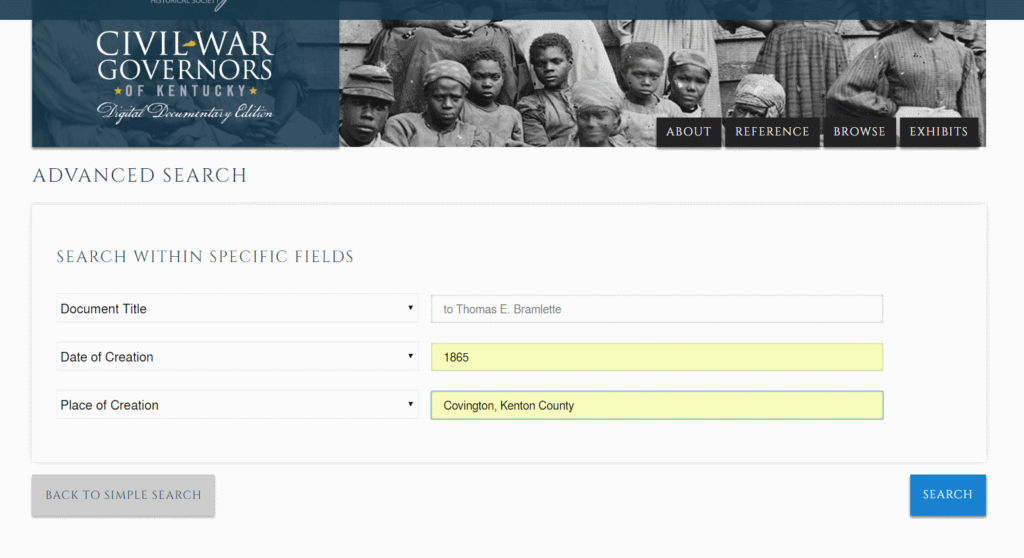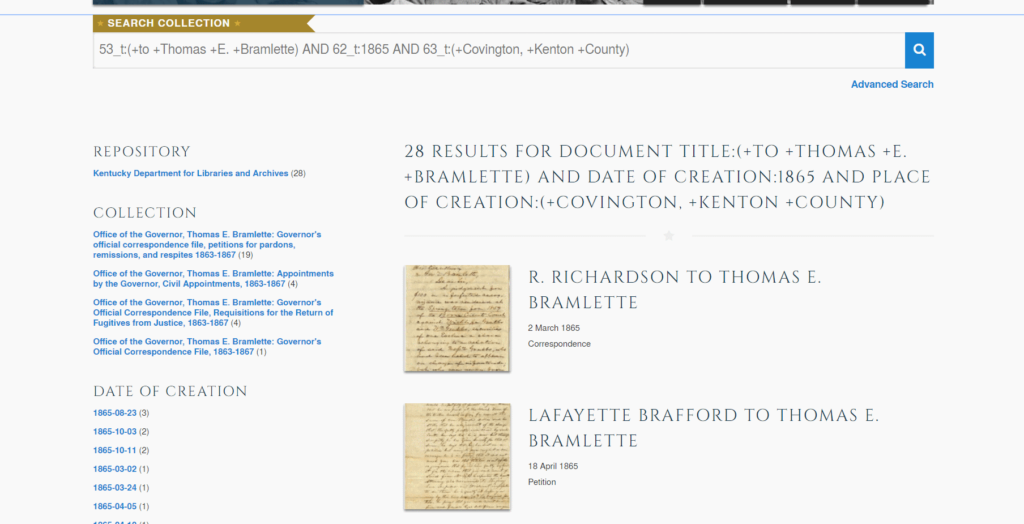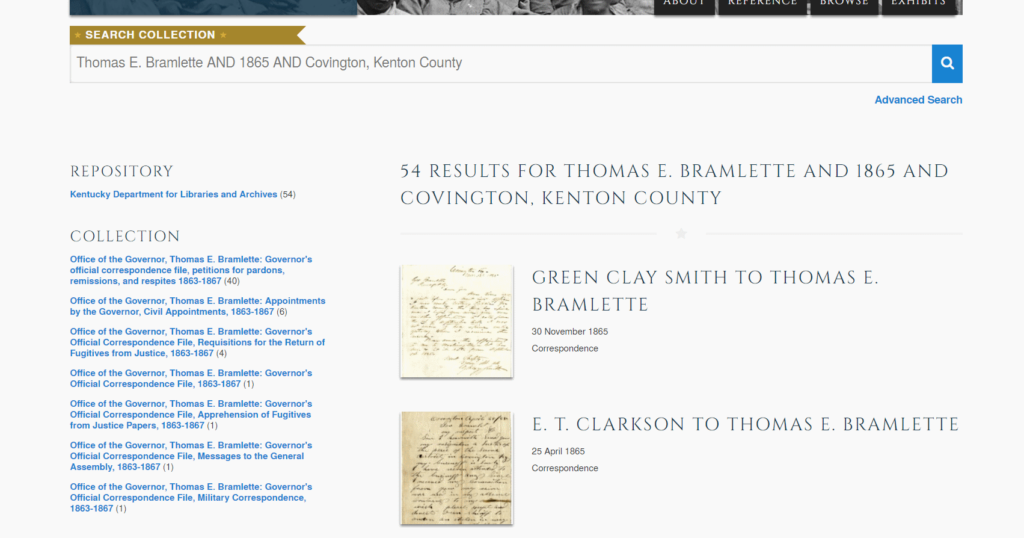Overview
The Kentucky Historical Society seeks two Graduate Research Associates (GRAs) familiar with 19th century United States history to write short informational entries for the Civil War Governors of Kentucky Digital Documentary Edition (CWGK). GRAs will receive a stipend of $5,000 each and can work remotely from their home institutions.
Each GRA will annotate 150 assigned documents. Each GRA must be a graduate student in at least the second year of a M.A. program in history or a related humanities discipline. These positions are funded by a grant from the National Historical Publications and Records Commission (NHPRC), a branch of the National Archives. This continues a successful program begun with eight GRAs in the 2016-17 academic year.
CWGK is an annotated, searchable, and freely-accessible online edition of documents associated with the chief executives of the commonwealth, 1860-1865. Yet CWGK is not solely about the five governors; it is about reconstructing the lost lives and voices of tens of thousands of Kentuckians who interacted with the office of the governor during the war years. CWGK will identify, research, and link together every person, place, and organization found in its documents. This web of hundreds of thousands of networked nodes will dramatically expand the number of actors in Kentucky and U.S. history, show scholars new patterns and hidden relationships, and recognize the humanity and agency of historically marginalized people. To see the project’s work to date, visit discovery.civilwargovernors.org.
Scope of Work
Each GRA will be responsible for researching and writing short entries on named persons, places, organizations, and geographical features in 150 documents. Each document contains an average of fifteen such entities. This work will be completed and submitted to CWGK for fact-checking before December 1, 2018.
Research and writing will proceed according to project guidelines concerning research sources and methods, editorial information desired, and adherence to house style. This will ensure 1) that due diligence is done to the research of each entity and 2) that information is recorded for each item in uniform ways which are easy to encode and search.
All research for the entries must be based in primary or credible secondary sources, and each GRA is expected to keep a virtual research file with notes and digital images of documents related to each entry. These will be examined regularly by the CWGK team as they fact check the GRA output and turned over to CWGK at the completion of the work. CWGK will fact-check all entries for research quality and adherence to house style. CWGK projects an average rate of one document annotated per two hours of work. Each GRA may expect to devote approximately 300 hours to the research—though the actual investment of time may vary.
Each GRA will work remotely. Interaction with the documents and the writing of annotations will take place in a web-based annotation tool developed for CWGK, which can be dialed into from any location. CWGK will make use of online research databases to make its work efficient and uniform. Other archival sources may be of value but are not required by the research guidelines. Securing access to the paid databases required by CWGK (Ancestry.com, Fold3.com, and ProQuest Historical Newspapers: Louisville Courier Journal) is the responsibility of the GRA. If regular institutional access to these databases is not available to the GRA through a university or library, it is the responsibility of the GRA to purchase and use a subscription to these databases. KHS will not reimburse the GRA for any travel, copying, or other expenses incurred in CWGK research.
In order to maintain quality and consistency as well as to foster a collegial and collaborative work culture, CWGK will conduct weekly virtual “office hours” via Google Hangouts, during which GRAs are required to dial in, ask questions of staff, share expertise and research methods, and make connections with their peers. Virtual attendance at these office hours is mandatory, and multiple sessions may be offered to accommodate schedules.
The Kentucky Historical Society will hold copyright for all annotation research as work for hire.
Evaluation Criteria
A proposal should consist of at least a narrative statement of professional ability in the form of a cover letter, a CV, and two letters of recommendation. Additional supplementary materials that demonstrate capacity in the evaluation factors may also be included.
Proposal materials should be submitted to Tony Curtis at tony.curtis@ky.gov by no later than February 15, 2018. Any questions about the GRA program may be directed to Curtis as well.
The Kentucky Historical Society will evaluate the proposals based on the following factors:
Research Experience (70 points): Describe your familiarity with research in 19th century U.S. history. Describe some projects you have undertaken. What sources have you used? Have you been published? Have you interpreted historical research in forms other than a scholarly peer-reviewed publication? How does the proposed research project differ from those you have undertaken in the past? Describe your familiarity with the strengths and weaknesses of online research databases such as Ancestry.com, Fold3.com, ProQuest, and Google Books.
Project Experience (30 points): Describe any work you have done in the editing of historical documents. Discuss how a project such as CWGK maintains balance between thorough research and production schedules. Have you worked on other collaborative projects in the field of history or otherwise? Describe your ability to meet deadlines and regulate workflow. Describe your understanding of and/or experience with the Digital Humanities. From what you know of the CWGK project, how does it fit with current trends in the field? What do you hope to gain from working on the CWGK project?

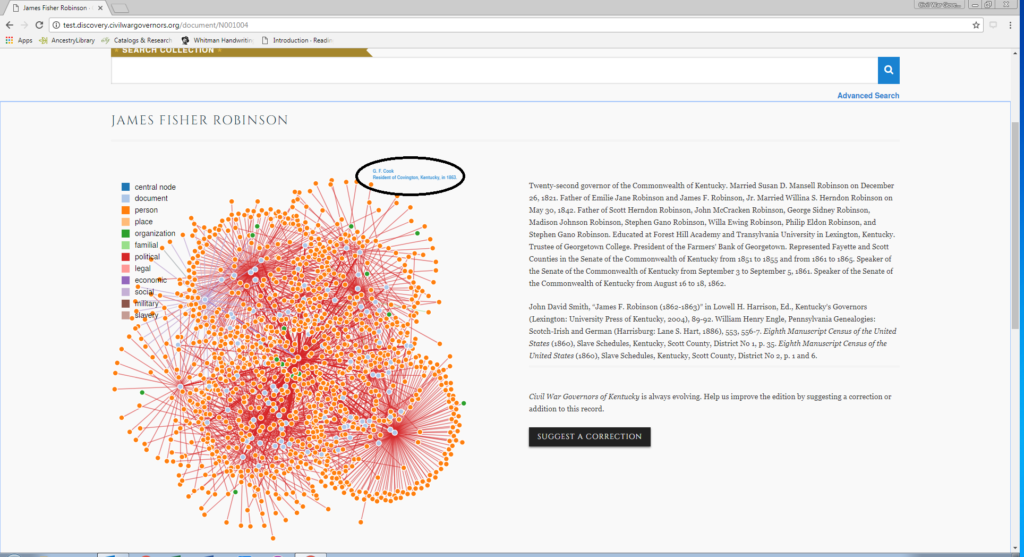
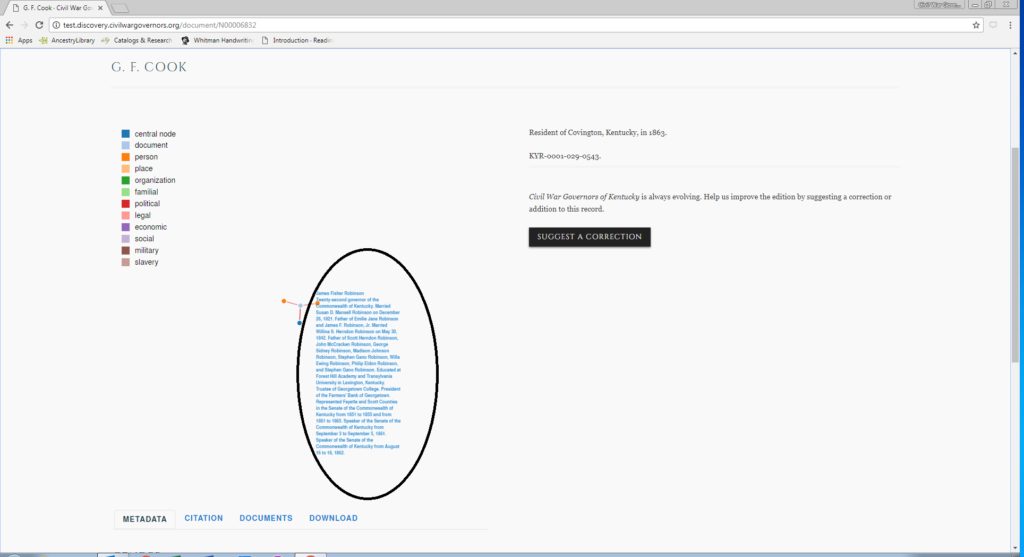
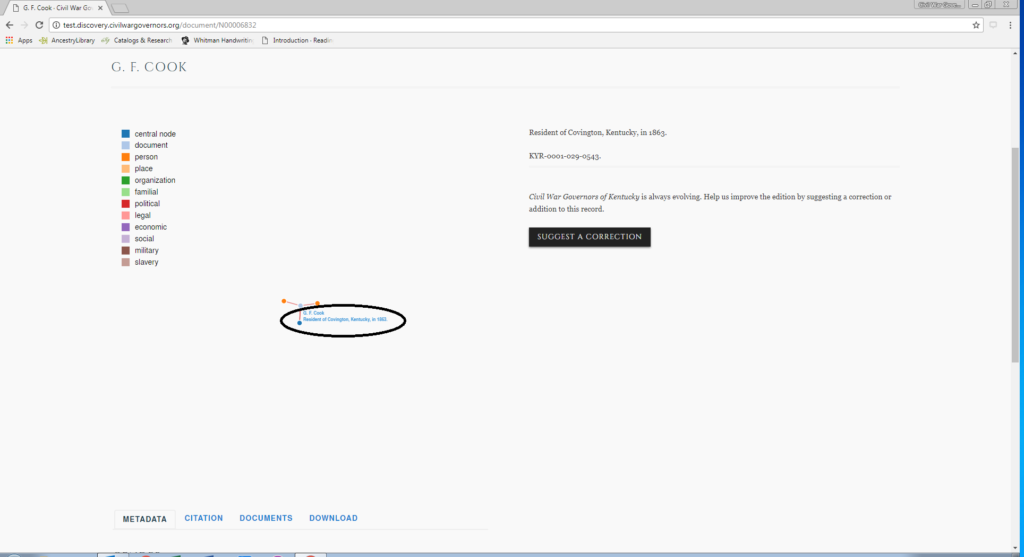
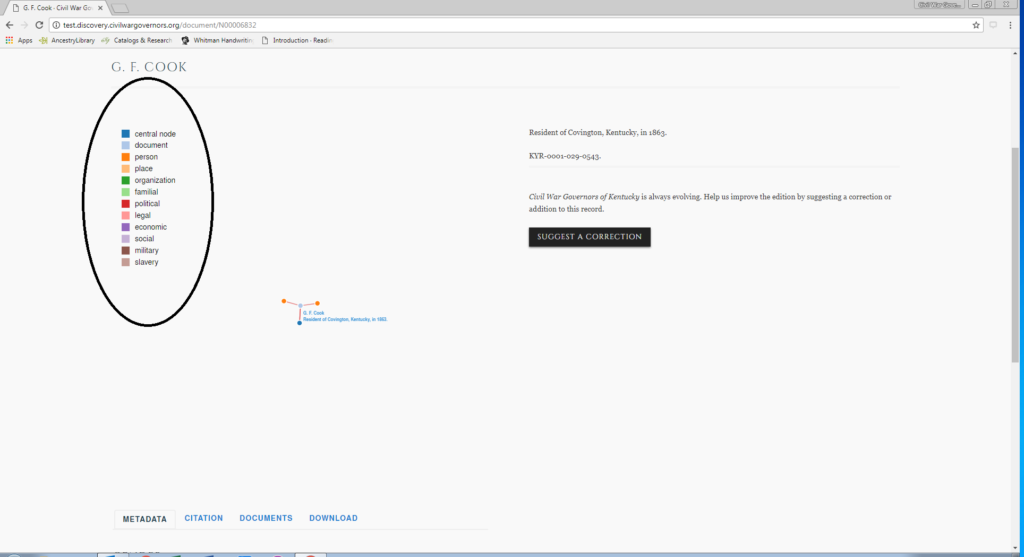
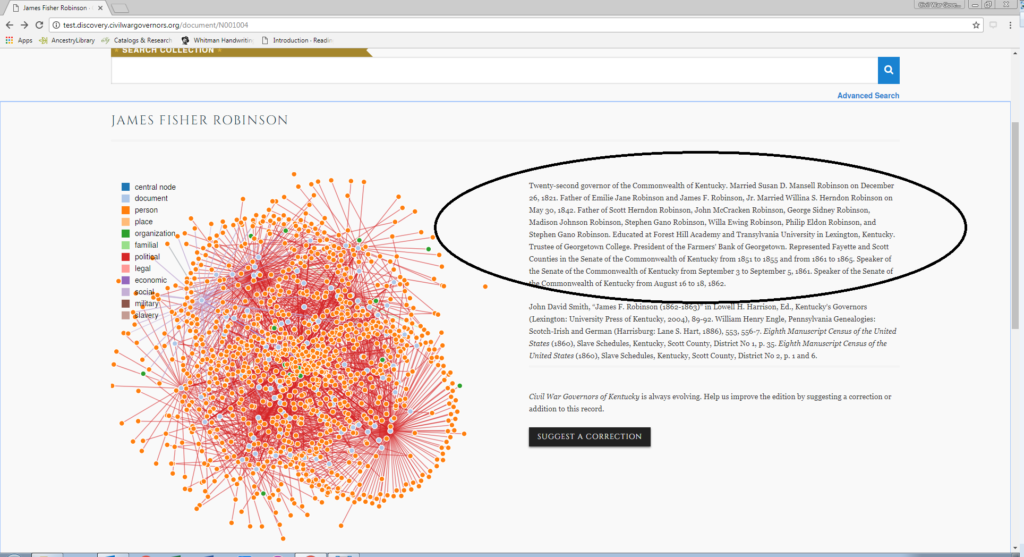
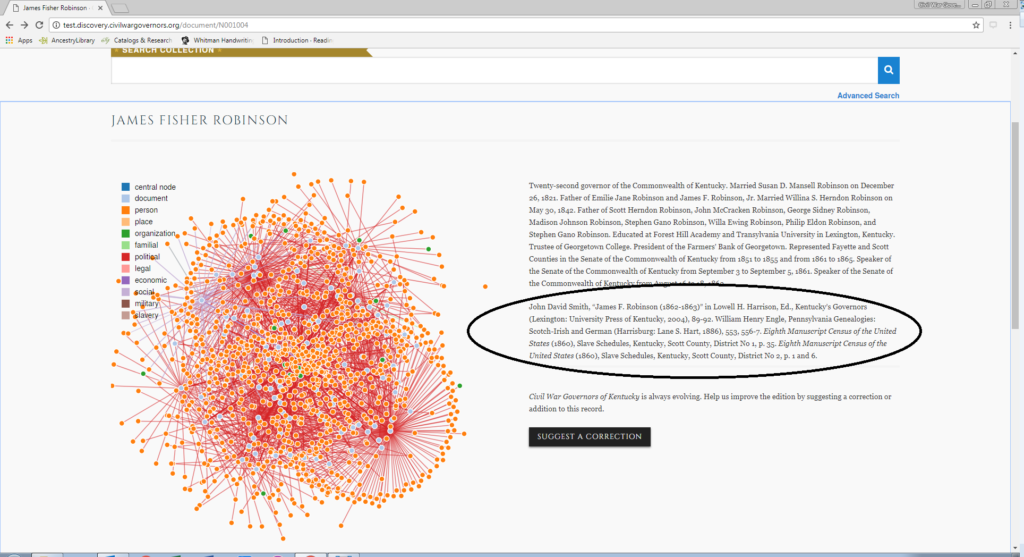
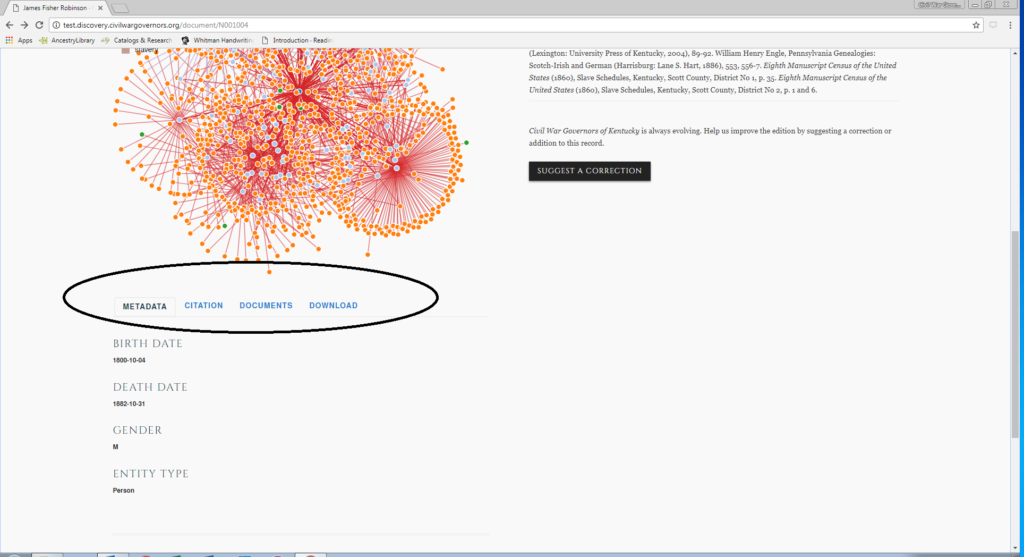
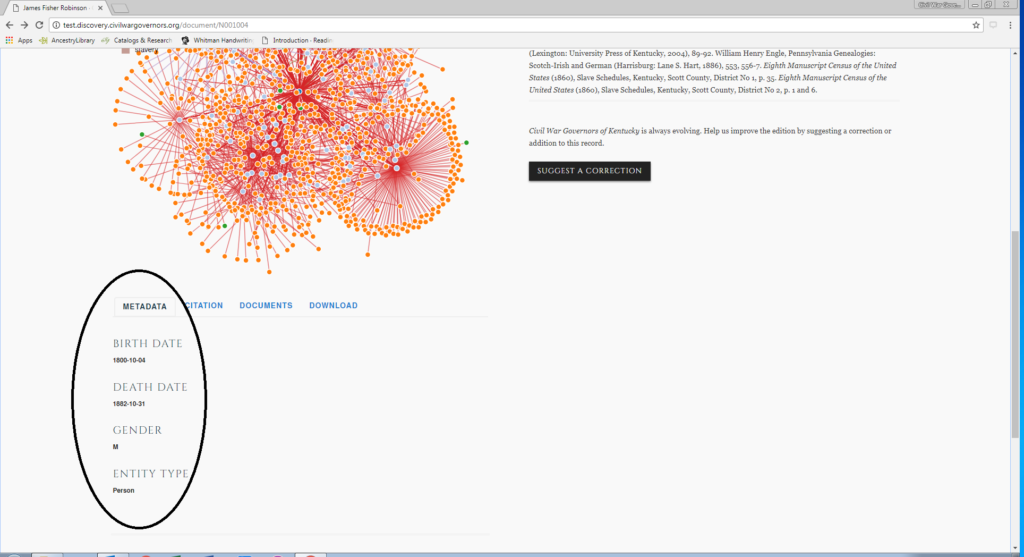
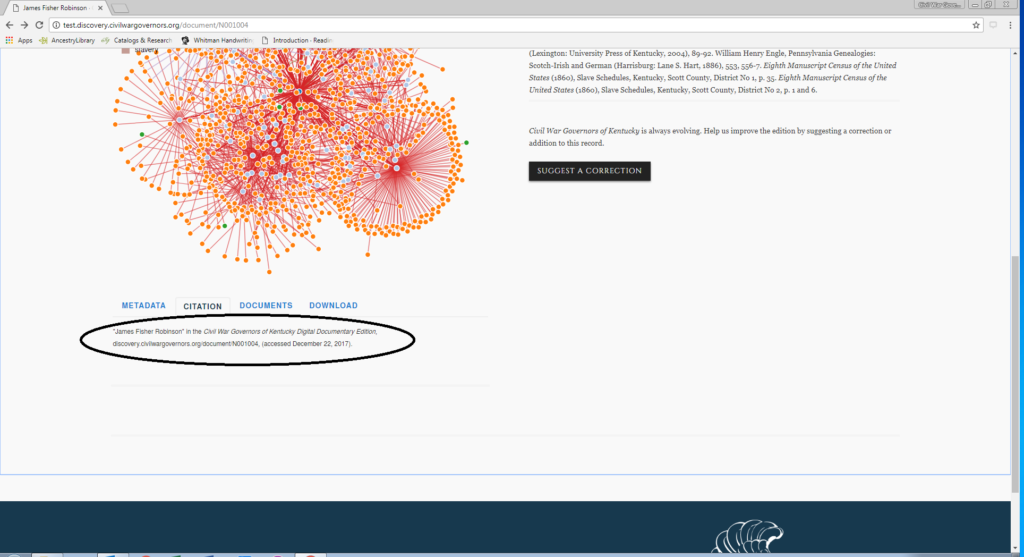
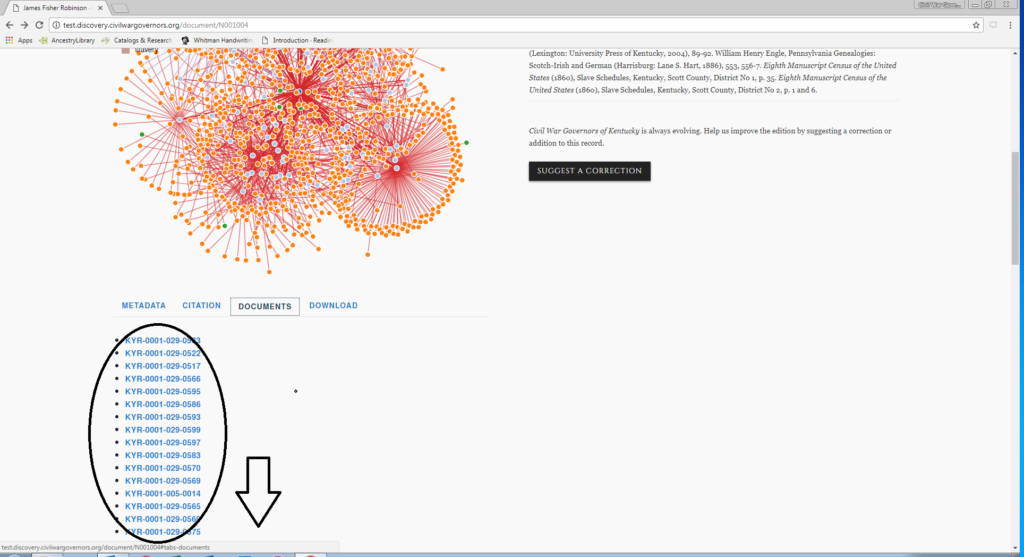
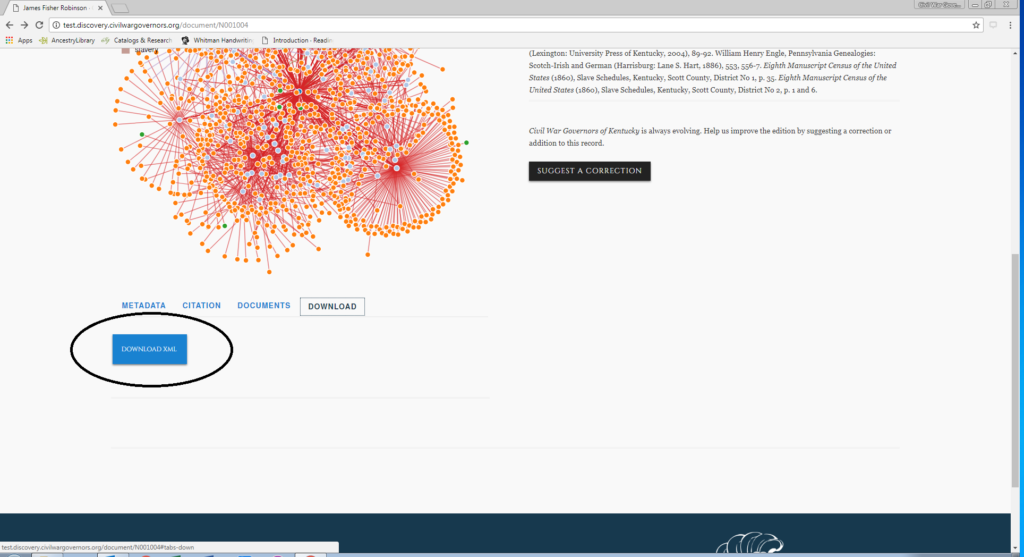
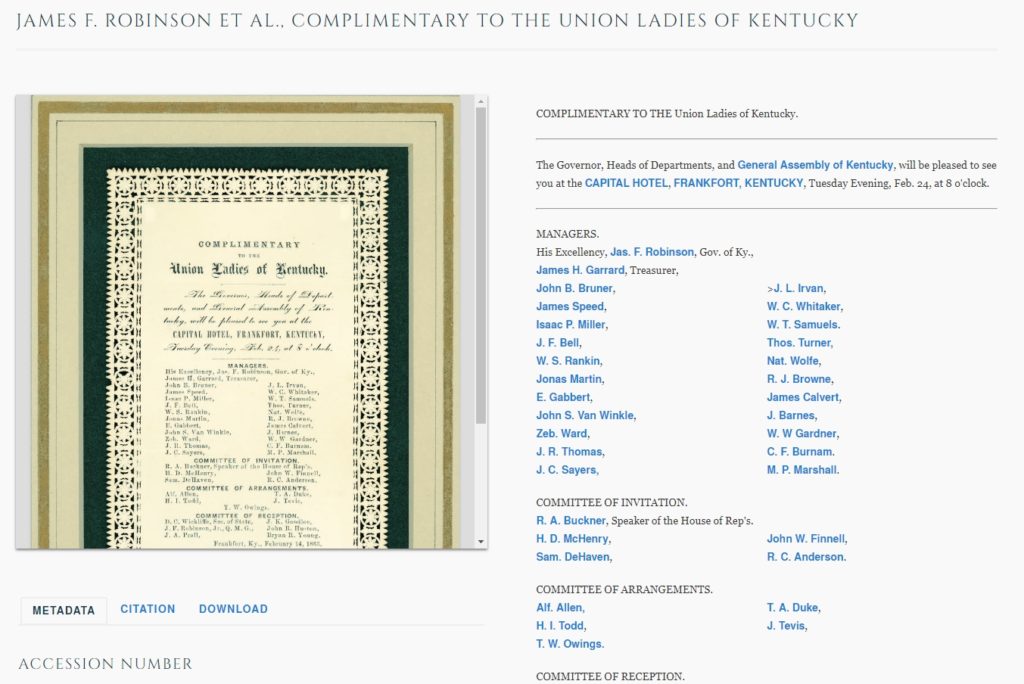
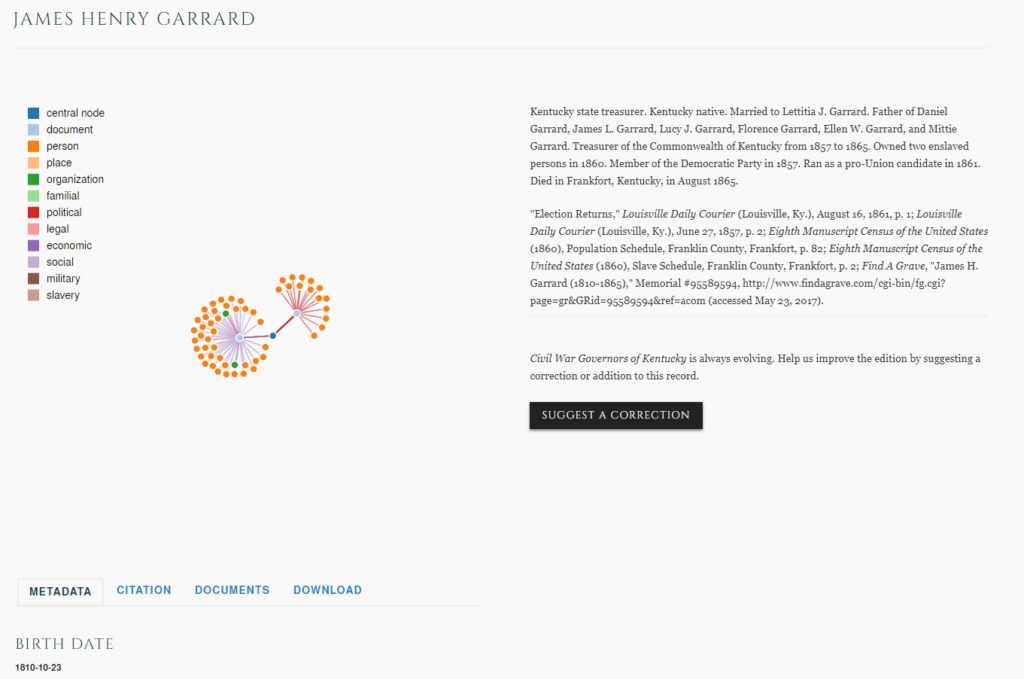
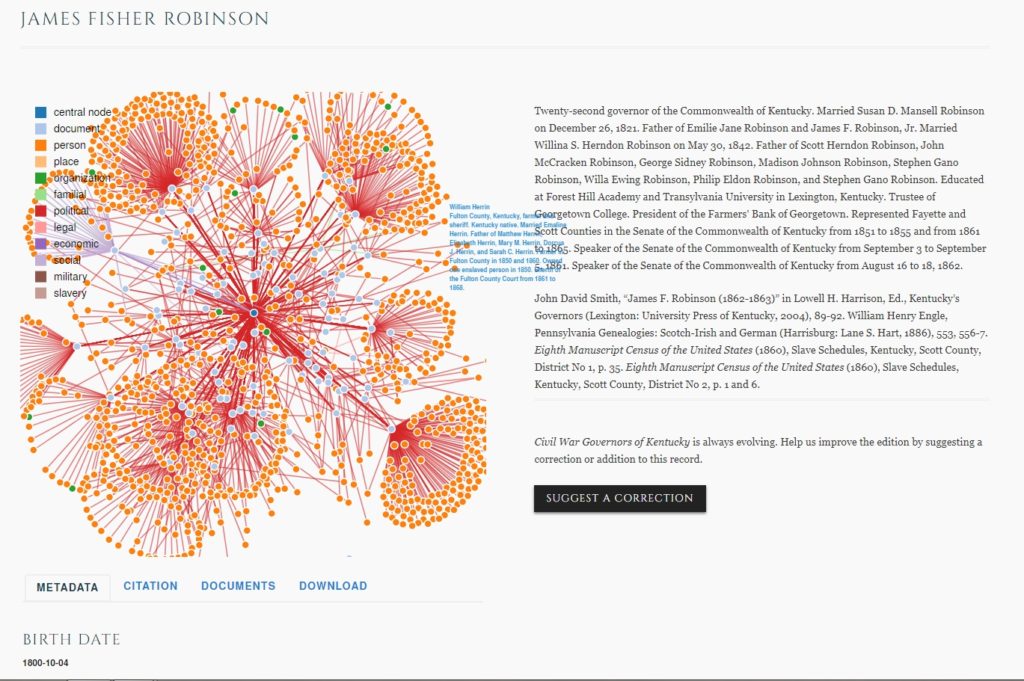
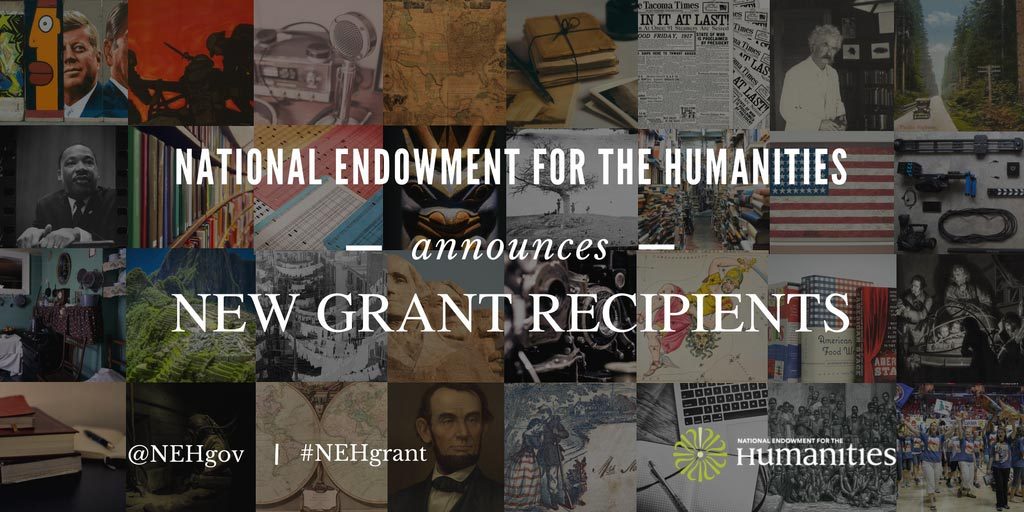 What
What 